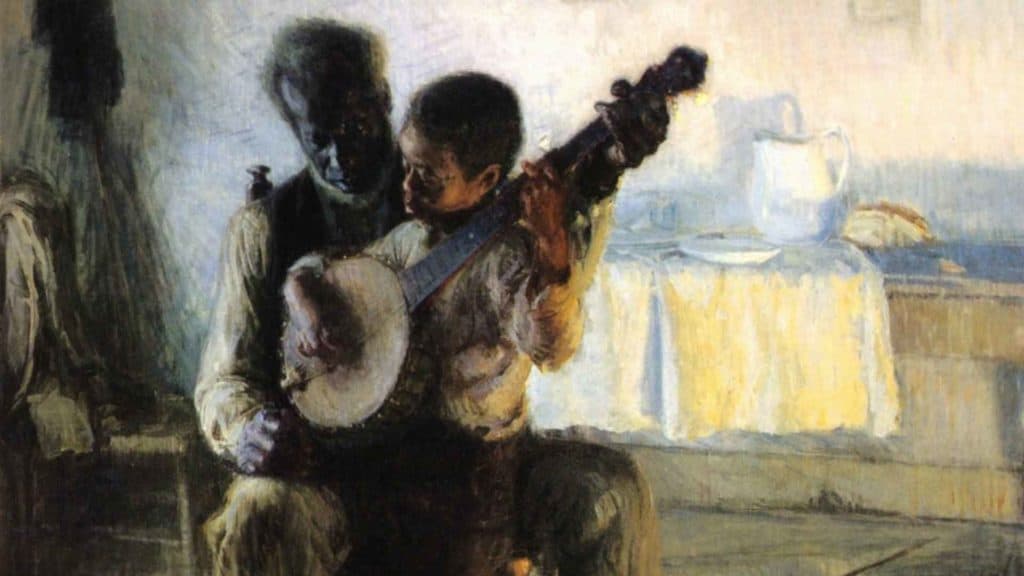Introduction
“We want to learn how you disciple people in your ministry.” The couple sat across the table from me, and I was at a loss for words. My wife and I led an urban ministry that obviously had impressed them. They desired a future in cross-cultural ministry and felt we had answers. The urban Christian leaders emerging from our ministry indicated discipleship success, but I was unsure if our methods even qualified as such. They did not fit the pattern of discipleship taught in Bible college. With a smile, I encouraged the couple to get to know the people and spend time with them. The conversation has reoccurred in my mind many times since. I understand now that I felt at a loss on how to communicate a discipleship process because it involved much more than just a curriculum.
Transformational discipleship among urban people may occur without the right program, but rarely without the right person.
The focus of many, when thinking of discipleship, is on the program. There must be a program, but for urban people the program holds less importance than the person. Payne noted that people, not programs, surfaced as the primary factor among those transitioning from poverty into self-sufficiency.1 The power of any program directly correlates with the people facilitating the process. Every program is only as functional as the people facilitating it. Transformational discipleship among urban people may occur without the right program, but rarely without the right person.
The purpose of this article is to reflect on Paul’s letters to identify key traits that should be cultivated in those desiring to facilitate discipleship with urban Christians. Each trait will be divided into a discussion of Paul’s perspective and his actual practice.
Paul’s Urban Expertise
Paul’s writings hold significance to this study for the following reasons: 1) Paul ministered in an urban context; 2) Paul’s ministry demanded discipleship of urban believers; and 3) Paul’s discipleship accomplished its goal.
First, Paul’s context was urban.3 The names of the New Testament books, Romans, Corinthians, Galatians, Ephesians, Philippians, and Colossians, undeniably demonstrate this point.
Second, formation held high importance in Paul’s ministry. The urban Christians to whom he ministered had little foundation in the Jewish or Christian faiths (Rom. 15:20). Paul recognized their need of formation and identified it as part of his calling (1 Tim. 2:7).
Third, the fact that Gentiles held status as the Christian majority by the second century indicates Paul, apostle to the Gentiles, accomplished his goal of reaching them with the Gospel. Paul will be examined as a model of facilitating discipleship among urban Christians to identify urban discipler traits.
Paul as a Model for Urban Disciplers
Paul understood the importance of having the right people facilitate the formation of urban Christians. He held himself strictly accountable to ensure the effectiveness of his influence (1 Cor. 4:16; Phil. 3:17; 2 Thess. 3:8-9). Paul modeled the role of discipler in three ways: a builder of Christian identity, a mobilizer into ministry, and a developer of Christian character.
Builder of Christian Identity
Identity was important to the development of Paul’s urban Christians for two reasons. First, the majority came from unimpressive backgrounds. In 1 Corinthians 1:26, Paul described the believers saying, “For consider your calling, brethren, that there were not many wise according to the flesh, not many mighty, not many noble.”4 As such, a proper self-concept was likely lacking.5 Second, Paul’s urban Christians came from non-Jewish backgrounds and were unwelcomed ethnic outsiders among some of the Jewish Christians.
Paul’s Perspective
Despite considerable opposition, Paul taught the equality of all Christians regardless of ethnicity, social status, or gender (Rom. 3:29; Gal. 3:28; Col. 3:11). In Colossians 3:11 Paul stated, “There is neither Jew nor Greek, there is neither slave nor free man, there is neither male nor female; for you are all one in Christ Jesus.” Paul refused to skirt the issue or communicate any doubts of the urban Christian’s full membership in Christ.
Paul’s Practice
Paul built the identity of the urban Christians through 1) affirmation of their faith; and 2) communication of equality.
First, Paul affirmed the urban Christians in their faith. Almost all of Paul’s epistles begin by affirming the Christian faith of his audience. He commonly referred to them in his letters as “saints” or “holy ones” (Rom. 1:7; 1 Cor. 1:2; 2 Cor. 1:1; Eph. 1:1; Phil. 1:1; Col. 1:2). This held significance because the Old Testament frequently designated Israel in this way.6 Paul frequently shared that he thanked God for the believers and their faith (Rom. 1:8; Phil. 1:3; Col. 1:3; Col. 2:5; 1 Thess. 1:2; 2 Thess. 1:3; Philem. 1:4). He further affirmed the faith of his readers by lavishing them with praise for their demonstrations of faith, love, obedience, and generosity referencing what he had said or heard about them among others in the Christian community (Rom. 1:8, 16:19; 2 Cor. 8:24; Eph. 1:15; Col. 1:4, 8; 1 Thess. 3:6; 2 Thess. 1:4; Philem. 1:5).
Second, Paul communicated equality to the urban Christians. He asked for spiritual encouragement from them (Rom. 1:12; 2 Cor. 1:11; 9:2), requested prayer (Col. 4:3-4; 1 Thess. 5:25; 2 Thess. 3:1-2; Philem. 1:22), accepted financial contributions to his ministry (Phil. 4:17), and requested favors (Philem. 1:17). By allowing this participation, Paul intentionally placed himself on an equal plane with the urban believers. The Jews may have been unsure of God’s interest in the Gentiles, but to Paul they were sons and heirs of God (Gal. 3:26; 4:7; Eph. 3:6). He placed them in Israel’s religious history right along with the apostles and prophets (Eph. 2:19-22).
Paul intentionally placed himself on an equal plane with the urban believers.
Mobilizer into Ministry
Paul’s view of equality led to the inclusion of the urban Christians into his ministry. He started churches and almost immediately turned them over to the new Christians. He felt the Church was a body in which each member played an important part. In writing to Titus he tells him to constantly promote the laity to good works (Titus 3:8; 14).
Paul’s Perspective
Paul was passionate about ministry and willing to do whatever it took to win lost people to Christ (1Cor. 10:31-33). He boldly proclaimed the Gospel in public places and to rulers and kings. Although Paul did not communicate that all Christians witness in the same manner as himself, he held an expectation that all Christians intentionally reflect a positive witness to those outside the faith (Col. 4:5-6; 1 Thess. 4:11-12; Titus 2:1-9). He also felt that each believer should have an active role in ministry (1 Cor. 12; Eph. 4:12).
Paul’s Practice
As a discipler, Paul remained active in ministry. This could be perceived as a weakness since he was absent from the churches he planted. However, in reality it assisted the urban Christians’ ministry formation in three ways: 1) Paul served as a ministry role model; 2) his absence created ministry opportunities within the churches he planted; and 3) his activity created opportunities to involve urban Christians in other ministries.
As a role model, Paul was unrivaled. His entire ministry emphasized a passion for the Gospel and witness to those outside the faith (Rom. 15:20). He boldly proclaimed the gospel and felt it better to suffer inconvenience than jeopardize his witness to the lost (1 Cor. 9:19-23). As a church planter, he emphasized the need for local leadership (Titus 1:5).
Paul is never alone in ministry.
Paul’s methods are still taught to missionaries today as the appropriate method of church planting (Hodges 1976). Paul constantly involved people in his ministry (Rom. 16:1-4, 6, 21-23; 1 Cor. 1:1; 4:17; Titus 3:12-13; Philem. 1:13; 24). Bakke (1997) appropriately states, “I never see Paul alone in ministry” (170).
Developer of Christian Character
Paul’s ministry demanded that he develop Christian character. He had little desire to preach to those who had already heard the gospel (Rom. 15:20). The early Gentile Christians to whom he ministered came from depraved backgrounds and environments (Acts 14:11-13; 19:18-19, 35; 1 Cor. 5:19; 6:9-11). They lacked the moral foundation of the Jewish Christians as can be seen in Paul’s reprimands for issues such as strife, sexual immorality, laziness, and dishonesty (1 Cor. 3:3; 5:1; 2 Thess. 3:11-12; Titus 1:12-13). To Titus, Paul acknowledges the difficulty of finding suitable church leaders stating, “One of themselves, a prophet of their own, said, ‘Cretans are always liars, evil beasts, lazy gluttons.’ This testimony is true. For this cause reprove them severely that they may be sound in the faith” (Titus 1:12-13). In Romans 1:29-31, Paul more broadly describes the Gentiles of his day saying:
They have become filled with every kind of wickedness, evil, greed and depravity. They are full of envy, murder, strife, deceit and malice. They are gossips, slanderers, God-haters, insolent, arrogant and boastful; they invent ways of doing evil; they disobey their parents; they have no understanding, no fidelity, no love, no mercy.
Verse 32 indicates that this depth of depravity resulted from the searing of their God-given consciences by knowingly engaging and approving of evil (Stott 1994, 79). The problem was not ignorance, but rebellion against God. Paul formed Christian character among urban Christians in these depraved urban contexts by appealing to conscience, providing an empowered perspective, allowing for growth, and appealing to the community for member accountability.
Paul’s Perspective
Paul described his role to the urban Christians as that of a nurturing parent (1 Cor. 4:14:16; 1 Thess. 2:7). He felt his apostolic authority had been given for “building up and not for tearing down” and expressed a dislike of having to reprimand those straying from the faith (2 Cor. 13:10). He rebuked when necessary, but did not overuse this authority. Instead, Paul viewed the Christians from the standpoint of their moral progress rather than their deficiencies. He felt that all people had been given a conscience to help guide them (Rom. 1:18-32; 2:14-15). He emphasized a clear conscience more than rules (Rom. 13:5; 1 Tim. 1:5). In Romans 14:23, Paul places heavy emphasis on the conscience of urban Christians saying, “But he who doubts is condemned if he eats, because his eating is not from faith; and whatever is not from faith is sin.” Although the new Christians needed to be educated by scripture and could not entirely rely on their conscience for moral guidance, maintaining a clear conscience played a role in their character formation (2 Tim. 3:16-17; 1 Cor. 8:7-13; 1 Tim. 4:2; Rom. 14:23).
Paul’s Practice
Paul built Christian character by providing urban Christians with an empowered perspective toward sin. They suffered from psychological enslavement to sin. In Romans, Paul used the metaphor of freed slaves and prisoners still living as if they had no freedom to describe Christians who continued in sin (Rom. 6:6, 13, 14). Before accepting Christ the urban Christians had indeed been enslaved to sin (Rom. 6:20; 7:14, 17, 20, 23). However, in Christ this changed. As Christians, the Holy Spirit dwelt in them and empowered them to live holy lives (1 Cor. 3:16-17; 6:19; Rom.8:4, 9-10; Gal. 5:16). They were now free to live righteously (Rom. 6:7, 18, 20, 22; 8:2; 1 Cor. 15:17). Paul challenged their disempowered perspective toward sin with one of spiritual empowerment in Christ.
When Paul did need to reprimand Christians, he often appealed to the community to hold those in it accountable (1 Cor. 5; Gal. 6:1-2; 1Thess. 5:14; 2 Thess. 3:6-15). He taught that each Christian held responsibility for the spiritual wellbeing of others in their community (1Cor. 8:9-13). Community accountability had two purposes: 1) it was intended to correct harmful behavior; and 2) it kept the sin from spreading among other members in the church (1 Cor. 5:5-6). When practiced it reinforced the need for appropriate character both to the individual and to the community.
Conclusion: An Alternate Ending
A reflection on Paul’s letters to the early urban Christians brings to the surface three key traits that should be cultivated in those desiring to facilitate discipleship with urban Christians. The traits include: builder of Christian identity; mobilizer into ministry; and developer of Christian character. These traits along with their corresponding perspectives and practices serve as a foundation for urban discipleship.
This article is only intended to be a starting point to uncover the perspectives and practices of effective urban disciplers and to implement the ideas a discipleship program needs created for potential disciplers that supports the traits discussed above. The delivery of the traits will be different in every context, however, an alternate ending to the introductory story may be as follows:
“We want to learn how you disciple people in your ministry.” The couple sat across the table from me and I knew exactly what to say. With a smile, I handed the couple a handbook outlining the discipleship program for disciplers and encouraged them to begin attending our monthly meetings to learn from the presentations, roleplays, and case studies activities. I shared the traits I had discovered that made an effective urban discipler and explained how the curriculum and cultural mentors assisted them in succeeding. Finally, I invited them to go along with one of the ministry’s disciplers on a discipleship outing.
Notes
1 Ruby K. Payne, A Framework for Understanding Poverty (Highlands, TX, Aha! Process, 2oo5), 110.
2 Ibid., 63.
3 Wayne A. Meeks, The First Urban Christians: The Social World of the Apostle Paul, 2nd ed. (New Haven, CT: Yale University Press, 2003).
4 Unless otherwise noted all Scripture will be taken from the New International Version translation.
5 Bryant L. Myers, Walking with the Poor: Principles and Practices of Yransformational Development (Maryknoll, NYL Orbis Books, 1999) 76.
6 John Stott, The Message of Romans: God’s Good News for the World (Downers Grove, IL: InterVarsity Press, 1994), 55.
7 Frank Thielman, Ephesians. Baker Exegetical Commentary on the New Testament (Grand Rapids, MI: Baker Academic, 2010) 280. Larry Gilbert, Team Ministry: A Guide to Spiritual Gifts and Lay Involvement (Lynchburg, VA: Church Growth Institute, 1987) 19.
Works Cited
Bakke, Ray. A Theology As Big As a City. Downers Grove, IL: InterVarsity Press, 1997.
Gilbert, Larry. Team Ministry: A Guide to Spiritual Gifts and Lay Involvement. Lynchburg, VA: Church Growth Institute, 1987.
Hodges, Melvin. The Indigenous Church. Springfield, MO: Gospel Publishing House, 1976.
Meeks, Wayne A. The First Urban Christians: The Social World of the Apostle Paul, 2nd ed. New Haven, CT: Yale University Press, 2003.
Myers, Bryant L. Walking with the Poor: Principles and Practices of Transformational Development. Maryknoll, NY: Orbis Books, 1999.
Payne, Ruby K. A. Framework for Understanding Poverty. Highlands, TX: Aha! Process, 2005.
Stott, John. The Message of Romans: God’s Good News for the World. Downers Grove, IL: InterVarsity Press, 1994.
Thielman, Frank. Ephesians. Baker Exegetical Commentary on the New Testament. Grand Rapids, MI: Baker Academic, 2010.


